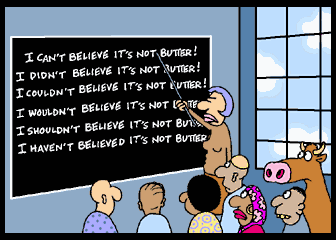|
Education
In Japan

Introduction:
After
the end of the Second World War the education system went under a major
overhaul.
The school system now stands at, six years of elementary school, three years
each of junior high and high school and four years of college. Compulsory
education stands at nine years.
The
school year starts in April. School holidays amount to around 40 days in the
Summer, around 10 days each for Spring and New Year holidays.
The
education system in Japan is primarily aimed at passing exams. Freedom of
expression or individualism is looked down on, and often punished.
|
|
The Best
Schools?

The best
schools are those that have the highest percentage of students who go on to
university, especially the prestigious colleges, like Tokyo University.
This
can cause intolerable pressure on a child, from an early age, to perform well.
This pressure is especially acute at home, where, usually, the mother will push
the child relentlessly, to study hard and pass exams. These days the pressure
starts at a very early age, as competition for places at 'good schools'
increase. There are pre school, cram schools, with the aim of preparing a
toddler to take a prestigious kindergarten, entrance exam at 4 years old ! Some parents push their children too far, the child will often
commit suicide, sometimes very young children have done so. Truancy from school
is on the increase with school children, loosing interest in their schools.
|
|
A Child's
Life:
Japanese
children do not have much of a childhood, if they want to be accepted by their
peers,
or society. They generally have to go to cram schools after their normal school
ends in the evening, either because they need the extra tuition or peer pressure to conform with the other children
who attend the cram schools.
When the child gets home he will often have to continue studying, sometimes to
the early hours of the morning.
Schools have clubs, which the child must join, the club activities are often
held after school hours and at the weekends.
The need to conform is maybe, the biggest challenge the child will face,
throughout his or her school life.
A child that has received some education abroad, or who is not 100% Japanese,
will be in for a hard life at school. If the child received part of his education abroad, he will find it nearly
impossible to fit into a Japanese school again, because he is 'different' or 'has foreign ways'. The child may find himself
being bullied by other school children and also, even more shockingly, by his or her teachers !
|
|
A
True Story:
I
have heard a couple of horror stories from concerned Japanese parents about their children,
one such story, which highlight the above points exactly:
A Japanese family went to the US to join their husband and father, who had been
sent there on a 3 year assignment by his company. They have one child, a son,
who at that time was 9 years old. The child adapted to American life, far easier
than his mother, enjoying school and making many friends. The child's English
language ability was nearly that of a native speaker, when it was time to return
to Japan, at the end of the 3 years.
Upon starting school in Japan again, the child was shunned by other students.
His English teacher (Japanese middle aged male) could not pronounce English from
his text book very clearly. On one such occasion the child tried to correct a
mispronunciation, made by his teacher, a bad mistake in Japan ! The teacher
became incensed and loudly scolded the child in front of the other students.
Soon after that, the child started to be bullied by other children. The parents
believe it was incited by one or more teachers to 'put the lad straight'.
Needless to say, the child was very scared and did not want to go to school. He
ended up at one of the very fine international schools in Tokyo, where he could
continue his education in a happy environment.
|
|
School
Teachers:
If you have
ever listened to Pink Floyds, The Wall, it could be describing typical school
life in Japan. Teachers have at times punished children so severely, that they
have inflicted serious injuries on the child, or sometimes killed the student.
One case in recent memory stands out in my mind because of the shear senselessness and brutality of the crime.
A young female student was sometimes late for school, one morning the child was
late again, the teacher standing guard at the gate, slammed the heavy steel gate
on the child's head, causing her death. This deliberate murder of a young child
by a teacher shocked me completely. The teacher in question did not receive a
very severe punishment !
|
|
The
Future:
There are many
cases of teacher brutality against their charges, it is crazy for anyone to
condone such behavior whether they are Japanese or foreign citizens. The
punishment is not equal to the crimes committed.
The truancy rate has seen a steady increase over the last few years, across the
age groups (little wonder). The Ministry of Education, from time to time,
promises school reforms, serious reforms have yet to materialize, for example,
better teacher training, screening the teachers for mental illness, etc.
Censorship of school text books, where it relates to the Second World War, the
massacre in Nan king, sex slaves and so on, happens surprisingly quickly. I wonder what the reason for this is ?
On a positive note, children in Japan are among the best educated in he world,
even if they are not taught to be dynamic and have much of an imagination.
As with the politicians, the new generations of school teachers and bureaucrats
at the Ministry of Education, who will control education in the future, just
may, make some real changes that the old guard seem incapable of doing. Giving a little more freedom and letting the children have an
imagination, can only be in the nations best interests in the future. The
children are the most important resource for every country, on this planet.
|
|
The
Ministry of Education:
They
announced on November 13th. 1998, that it is revising the screening process for
school text books.
The revisions are as follows: checking for typographic errors will end. At the
present time, inspectors check 10 random pages, if more than six are found the
book is returned to the publisher for a complete overhaul.
Inspectors will have to put in writing any requests for changes in
the text books. Now a verbal communication to the publisher is all that
is required. These changes will come into practice for the new
courses of study in 2002 for elementary and junior high schools, and
high schools in 2003.
These changes do not guarantee an end of government
interference in the content of text books or an end of
censorship.
|
|
From time to time I will be adding more stories, related to this section.
Some
relevant education statistics.
|
|
Student
violence
Source: National Police Agency
Fiscal
1997 28,500 incidents of violence.
1,432 incidents in elementary schools.
21,585 incidents in junior high schools.
5,509 incidents in high schools.
25.8%
of incidents were directed at objects.
13.2% of incidents were directed at teachers.
The remainder were directed at other students.
The
number of reported bullying cases numbered 42,790 in 1997. Down 8,754 from the
year before.
Education
Education
ministry
School
truancy in 1997. Elementary and junior high students who missed
school for more 30 days or more = 105,414. Up 11,603 (12%) from 1996.
Those who detest school:
Elementary school students, 1 in every 369.
Junior high school students, 1 in every 5.
Unemployed
graduates in1997: 2 out of 3 could find work.
Nearly 82,000 are still unemployed.
Education,
High School Dropouts
Education
ministry
For fiscal year 1997 a record high of 111,491 high school
dropouts or 2.6%.
This is despite a fall in student enrollment of about 173,400 students.
Dropout rates for 1st year students = 1 in 24 (4.2%)
For 2nd year students = 2.6%
For 3rd year students = 0.8%
Elite
Public servant Exam results
Exam
for elite career posts in 1998.
35,754
students took the
test.1,239 applicants passed the test,176 were women.
Foreign Ministry Type 1 foreign service exam for diplomats.
938 applicants applied. 21 passed the exam. 3 of whom were women.
English
schools
Source: Fair
Trade Commission survey (June 26 1998)
Publicity material used by English schools that is misleading: 25% of schools
use such material.
This page was
last automatically updated on 01/03/13 05:16:01
|

